Cybersecurity comes in five distinct types: critical infrastructure security, application security, network security, cloud security, and Internet of Things (IoT) security. Cybersecurity also involves four main activities: identifying risks, protecting networks, detecting intrusions and responding to attacks. These four activities are known as “the cyber kill chain.”

Table of Contents
What is Cyber Security?
Cybersecurity is the act of protecting digital systems from harm, whether caused by human error, malicious intent, or technical failure. Cybersecurity is an interdisciplinary field encompassing both cryptography and security engineering. This is a growing concern for governments, businesses, and individuals alike as the rise of cybercrime continues to increase globally.
Cyber security is an integral part of any organization’s overall risk management program. This protects information and systems from unauthorized access, disruption or destruction. Security controls are implemented to protect users’ business data, intellectual property and customer information.
Note:
In an effort to prevent unauthorized access to computer resources, cybersecurity applications may lock user’s systems. This is performed with the help of complex encryption mechanisms that are often used in military or government organizations.How Cyber Security works?
Cyber security protects users’ PCs, networks and data from unauthorized use or access. This in turn protects user’s personal information from being stolen by cybercriminals. In simple terms, Cybersecurity safeguards a business’s computers, networks, and programs from damage and theft by hackers.
Users can create a unified defense against potential cyberattacks by integrating business, employee and process design. This unified defense can protect businesses from the damage caused by cyberattacks. Consequently, a comprehensive cybersecurity system actually prevents the exploitation of weaknesses by detecting and resolving them.
What are the types of Cyber Security?
The cyber security industry is growing and expanding, with new threats emerging daily. To ensure the best possible protection for a business, it is important to understand the different types of cyber security available.
There are many types of cyber security that users should know about:
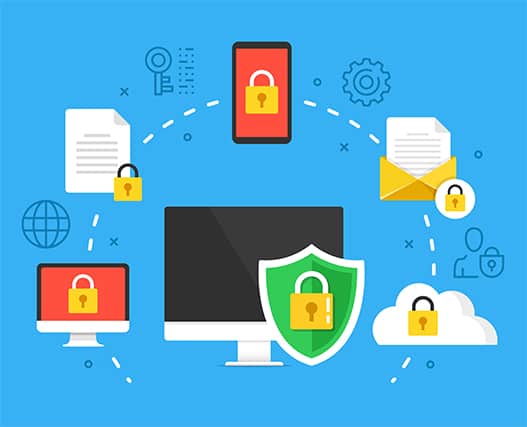
- Critical Infrastructure Security: Critical infrastructure security is the protection of critical infrastructure from cyber attacks. This includes utilities, transportation systems, emergency services and other industrial sectors that a cyber attack could impact.
- Application Security: Application security protects software applications from attacks by malicious code, such as viruses or worms that can spread via networks. This type can also protect against unauthorized access attempts by hackers trying to gain control over programs (e.g., through buffer overflows).
- Network security: This type of cyber security deals with securing computer networks against attacks such as viruses and other malicious software. Network Security also includes protecting the integrity and availability of computer data stored on a network by preventing unauthorized access.
- Data security: This type of cyber security refers to ensuring that only authorized users have access to sensitive data while protecting private information from theft or damage due to natural disasters or human error. A good example is password-protected accounts where only specific users can access certain files on the computer because of an authorization code (password) to do so by the manager who has higher authority in the company hierarchy.
- Cloud Security: Cloud computing services are increasingly popular because these services allow users to access software and data remotely. Cloud security ensures that these services are protected against hackers and cybercriminals who may try to access data stored in the cloud for illegal activities like identity theft.
- Internet of Things (IoT) Security: The Internet of Things is a network of physical devices connected to each other via the internet. The IoT includes cars, appliances and even clothing, which can be controlled remotely through an app. To protect these devices from hackers, companies must ensure proper security measures before putting devices on the market.
What are the elements of Cyber Security?
Cyber security includes protecting against threats such as malware, ransomware, social engineering and hacking. This also includes protecting data from being lost or stolen. The elements of Cyber Security are listed below:
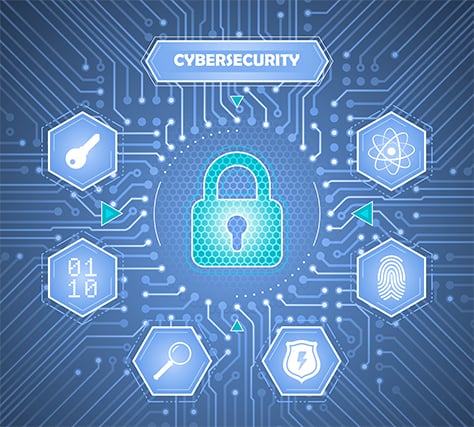
- Information Security
- Disaster Recovery Planning
- Application Security
- Network Security
- End-user Security
- Operational Security
Each of these elements represents a different infrastructure.
Information Security: Protecting a company’s data and the information it collects from clients, customers, or vendors is vital for the success of any organization. When a user hears about data privacy and compliance with privacy regulations, these regulations put in place a framework for information security. Many companies adhere to one or more information security standards to protect customers’ privacy. The penalties for failing to follow these standards can be severe.
Disaster Recovery Planning: The services of cyber security consultants are in high demand for disaster recovery planning. The right security measures can protect a business from being one that folds after a cyberattack. Disaster recovery protections are two-pronged, including prevention strategies and preparation for fast recovery. The consultant will secure user data by installing a backup and recovery system, running incident response drills and deploying strong endpoint protection.
Application Security: Keeping software applications impervious to threats is a luxury in the application security world. While some companies focus on the cloud to provide applications and services to customers, others focus on the technology that makes cloud computing possible. Companies that use Microsoft 365 for the cloud account but don’t customize security settings could be at risk for data breaches. Security consulting services can help business owners strengthen applications by implementing multi-factor and administration privilege controls.
Network Security: Network security involves protecting the network from both external and internal threats. Firewalls, for example, help companies monitor and control network traffic. This helps prevent threats from entering or exiting a company’s network. Wireless network security and encrypted, remote connections are two ways cyber security services can help protect the company’s network. The network security system is designed to ensure that users with the necessary credentials have access to the network and that no suspicious activities on the network indicate a potential breach.
End-user Security: End-user security refers to tools and methods designed to protect the devices that users work with and those who use them. Most cyberattacks begin with phishing emails, so end-user security is vital.
Operational Security: Operational security requires a holistic, big-picture approach to assess the users’ entire security strategy. This is important to ensure that all security techniques work together to protect a business.
What is the importance of Cyber Security?
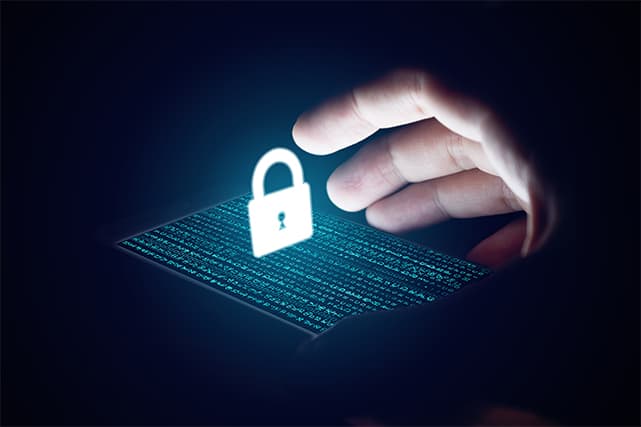
The importance of cyber security has been increasing tremendously in recent years. With the increase in internet usage, more and more people are getting affected by cyberattacks. Cybersecurity services are also necessary for anyone who wants to protect themselves from hackers.
Cyber security can be difficult to navigate, so many companies have opted to hire professionals to do the job. If a user wants to avoid the costly and potentially devastating problems that can come from hackers stealing private information, Protecting data with information security is a smart investment.
This is important:
The main purpose of cyber security is to protect the integrity and confidentiality of information. This also includes the identification of vulnerabilities to reduce risks and prevent attacks.How to manage Cyber Security?
It is essential to know the importance of cyber security. As business owners in particular, users are responsible for ensuring that the company is secure. However, cybersecurity is important for everyone, not just businesses.
There are many ways that users can manage cyber security.
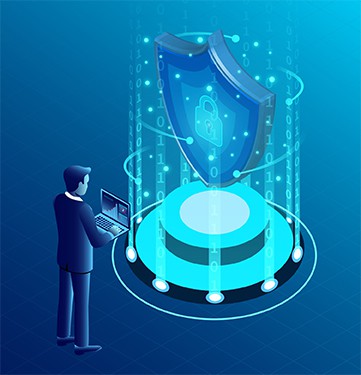
- One of the easiest solutions is simply installing antivirus software on the computer and ensuring the software is updated regularly.
- Another important aspect of managing cyber security is creating strong passwords for each account on the computer and mobile devices. Make sure that users do not use simple passwords like “123456” or “password.” These kinds of passwords are easily hacked by hackers or other cybercriminals.
- Users should also consider installing an antivirus solution on any other devices connected to the network at home or work, such as routers or printers, if not already protected by one built-in through the manufacturer’s firmware updates (e.g., Windows Update).
How does Cyber Security prevent Cyber Attacks?
Cyber attacks are becoming more common and can be very dangerous. These attacks can destroy all users’ data and infect users’ computers with viruses and other things that can hurt the business.
Cyber Attack: how to prevent it? Well, Cybersecurity protects users from hackers by blocking them from getting into the company’s computer systems and stealing information. This also stops cyber attacks by detecting intruders who try to break into networks.
Cyber security protects users from hackers and viruses that could destroy all the user’s data or corrupt confidential information. The key to cyber security is encryption: using a code to lock data so that only authorized people can read private information. The more complex the encryption, the harder it is for hackers to decrypt and steal the information. The good news is that there are simple ways to prevent cyber security breaches. Here are 5 Cyber security best practices to prevent a breach:
Use strong passwords: Passwords should have at least 13 characters and include upper- and lowercase letters, numbers, and special characters. Don’t use the same password for multiple accounts!
Back up the data: If all data is backed up regularly and stores the data in an offsite location, if the computer is hacked or stolen, data loss is prevented.
Install antivirus software: Antivirus software can detect malware and other malicious files before they reach the system or data. Make sure that any software that comes pre-installed on the device has been updated with the latest version from its manufacturer!
Update all software regularly: This includes operating systems like Windows 10 or macOS Sierra, as well as programs like Adobe Flash Player or Google Chrome. These updates often include patches for known vulnerabilities in those programs’ code base, so make sure to install the important updates.
What is the difference between Cyber Security and Information Security?
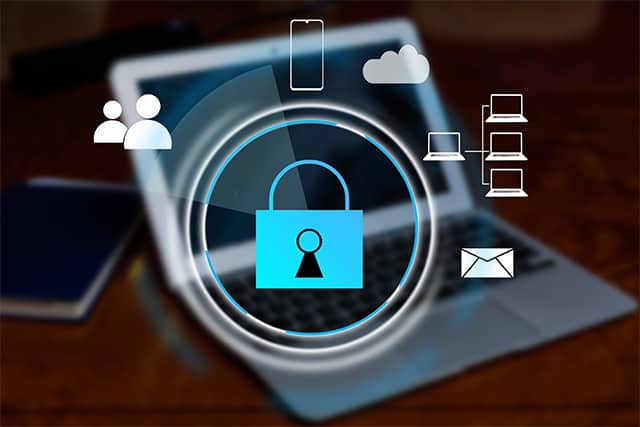
The major difference between cyber security and information security is that cyber security deals with any unauthorized access to a system or network. In other words, cyber security is primarily concerned with protecting against attacks that could take place over the internet. Cyber security is an umbrella term for all of these activities and more. On the other hand, Information security refers to protecting information from unauthorized access, use or modification.
Cyber security addresses the threat posed by an attack on an organization’s computer system or network, whereas information security focuses specifically on protecting data stored electronically. Information security includes encryption technology to protect data in transit and at rest, as well as firewalls to shield networks from unauthorized access attempts by hackers or malicious software.

